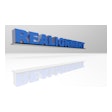South Korea has cut off beef imports from JBS USA after finding evidence that cattle were fed growth additive Zilmax. The beef in question came in a 22-ton shipment from a Texas plant owned by JBS USA.
Many European and Asian countries, including South Korea, have banned the use Zilmax, according to news reports.
“We are working with our partners at the U.S. Department of Agriculture and the South Korean government to resolve the issue concerning one of our U.S. facilities,” JBS officials wrote in a statement. “Given the current situation in Washington D.C. and the lack of official notification from South Korea, we do not have definitive information at this time.”
Merck Animal Health, which manufactures Zilmax, on August 16 temporarily suspended the sale of the feed additive in the United States and Canada. The suspension of the feed additive’s sales came one week after Tyson Foods stopped buying it because it suspected a link between Zilmax and cattle at Tyson facilities with difficulty walking. In addition, the Chicago Mercantile Exchange earlier in October announced it would stop delivering cattle that were fed Zilmax.
Merck Animal Health has asserted that Zilmax is a safe product, but has implemented a five-step audit to verify its safety.
The audit, which Merck will conduct in conjunction with independent experts, will monitor the process of feeding of Zilmax, and will follow identified cattle from the feedyard to the packing plant to determine potential causes of mobility issues during feeding, transportation, offloading and staging at the processing facility. The audit will also include a thorough review of other potential factors-such as nutrition, transportation and receiving facilities.
The company stated the suspension of sales should allow sufficient time to establish valid study protocols, identify feeders and packers to participate in the audit, and creation of a third-party team to oversee the process and validate its results.
Merck stated when the audit is completed, it will make the results publicly known.















